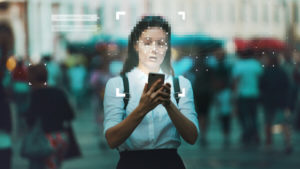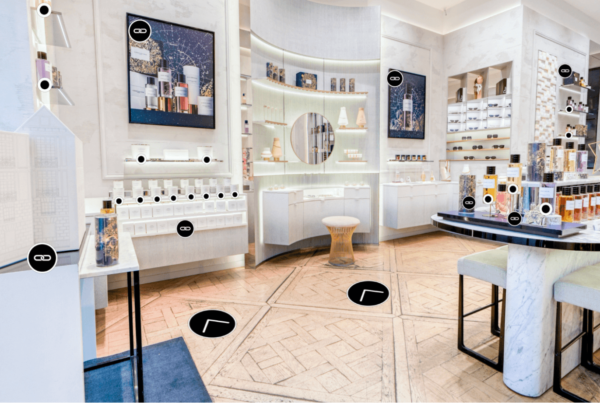Understanding your customers using face analysis can be a tricky topic. Usually, you wind up in a face analysis vs. face recognition discussion and it’s focused on privacy. And no matter what sector you work in, it’s a safe bet that your business would benefit from increased privacy protection. Studies have shown that up to 87% of U.S. consumers say that data privacy is a human right. Furthermore, nearly one-third of consumers care enough about privacy to take action—by switching companies over concerns about data-sharing policies.
Here’s the good news. Today’s businesses can protect their customers’ privacy while still getting to know them and offering personalized goods and services. How? It all comes down to finding the right technology.
Keep reading for more insights on the difference between face analysis vs. face recognition and how face analysis can help companies better understand their customers without violating their privacy.
Understanding Your Customers: Analyzing User Needs With FaceTrace
Both face analysis and face recognition are powered by artificial intelligence. They use face detection and face mapping to perform what they’ve been built to do. The major difference is that face recognition identifies the person behind the face, while face analysis gauges facial markers and expressions to extract information and assess customer needs without ever identifying the person. FaceTrace by AlgoFace uses face analysis technology to:
- Track eye gaze and head pose to measure consumer reaction to products: Are customers looking straight at an object or are they turning their heads away?
- Provide insight into how precisely consumers engage with videos and websites: Are they scanning a website quickly or are they perusing it s
 lowly?
lowly? - Estimate how many people are in a particular room: FaceTrace can detect faces in still images or on video and monitor for masked faces as well as unmasked.
The one thing FaceTrace cannot do, and will never do, is invade people’s privacy by identifying or verifying who they are. Our technology works hard to understand how people are engaged in and react to things by analyzing even the most subtle facial movements, but it does not identify individuals. That’s how FaceTrace builds trust through face analysis.
Understanding Your Customers: Face Analysis Applications
There are countless possible applications of face analysis. Here are just a few.
- Healthcare: Medical professionals use face analysis to analyze patients’ facial expressions, assess their needs, and measure how much pain they are experiencing. The technology has also been used in the mental health field to scan for depression and anxiety. Additionally, it can detect vital signs such as heart rate, blood pressure and respiration rate.
 Gaming: Video game testers have used face analysis to understand whether users are engaging with certain games. The technology can pinpoint the moment when users lose interest and turn away. It can also assess the game’s emotional impact on its users.
Gaming: Video game testers have used face analysis to understand whether users are engaging with certain games. The technology can pinpoint the moment when users lose interest and turn away. It can also assess the game’s emotional impact on its users.- Driver monitoring: Face analysis can monitor drivers to see whether their eyes are on the road, if they’re distracted, angry, or drowsy.
- Building monitoring: It can monitor entrances to rooms and buildings and keep track of how many people are in a given area to prevent overcrowding in small spaces. This way, building administrators can ensure everyone maintains proper social distancing.
It’s worth repeating that none of these applications involve identifying or naming anybody. The beauty of face analysis is its ability to learn a great deal about people’s immediate needs and concerns, all without invading their essential privacy.
Preparing for Privacy: Developmental Waypoints
 Like any other goal, achieving privacy as a feature requires work and preparation. Our partners will need to build up their data processing capabilities so that they can securely operationalize low-latency photos and videos. Again, it’s a matter of becoming self-sufficient and growing the capacity to run effective AI tools without running the risk of compromising anyone’s privacy.
Like any other goal, achieving privacy as a feature requires work and preparation. Our partners will need to build up their data processing capabilities so that they can securely operationalize low-latency photos and videos. Again, it’s a matter of becoming self-sufficient and growing the capacity to run effective AI tools without running the risk of compromising anyone’s privacy.
Moving Forward With AlgoFace
At AlgoFace, we believe that technology is only as valuable as the people it serves. That’s why we invest in creating inclusive and privacy-driven AI. We train our algorithms using a diverse sample set that reflects the diversity of our world.
We also use around three times as many facial landmarks as our competitors, making our solution more precise, which greatly reduces the risk of errors. Our goal is to ensure that every single face is truly seen by our algorithms.
We are continually working to improve the user experience for all human beings. That means training our algorithms and testing and improving them to make sure they are as inclusive and unbiased as possible.
AlgoFace works with businesses across a range of industries. Request your free trial to learn how FaceTrace can improve and personalize your offerings—all while protecting your customers’ privacy.




